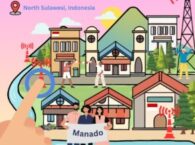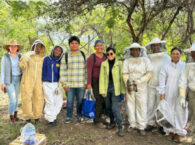Diminishing the Divide: Connecting Urban and Rural Residents in Oregon Through Theater
Metrics
University
Eastern Oregon UniversityProgram
Rural Engagement & Vitality (REV) CenterYears
2020-PresentStatus
In ProgressCase Type
Project StoriesFocus Areas
Community, TheatreDiscipline
TheatreRegion
EPA Region 10Sustainable Development Goals
11 Sustainable Cities and Communities, 16 Peace Justice and Strong Institutions, 17 Partnerships for the GoalsIn hopes of diminishing the urban-rural divide in Oregon, the Rural Engagement & Vitality (REV) Center, a joint venture of Eastern Oregon University and Wallowa Resources, has partnered with Sarah Greenman to create a play that will tell “unheard narratives” from state residents (REV Center, 2020). The Urban-Rural Theater Project will be a verbatim play based on the testimonials of underrepresented people in mainstream media. These people include women, Native Americans, rural residents, formerly incarcerated individuals, members of the LGBTQ+ community, and more. Since 2020, Sarah Greenman, the project’s manager and playwright, has worked with students from Eastern Oregon University’s theater department to interview people on their experiences living in Oregon and how it has impacted their sense of belonging. Despite the COVID-19 pandemic complicating the interview process, the team has spoken to over 30 people from various backgrounds, geographies, and identities. The production of the play is set for 2024, and more students from Eastern Oregon University’s theater department are anticipated to help with the script, technical work, and reading of stories as actors in the play. As of now, the production team is looking for funding to continue with their plans for the future of this project.

The Urban-Rural Theater Project focuses on themes of landscape, belonging, policy and politics, ideology, and commonalities between diverse groups of people. Greenman shared that her goal for this piece is to spark conversations about the urban-rural divide, as everybody interviewed for the play had “a beautiful understanding of belonging.” With the Greater Idaho movement* being a prevalent topic in eastern Oregon, there is a defining polarization in the state regarding political beliefs, affecting how welcome people feel in the state.
This highlights the importance of a diverse pool of respondents, as the project hopes to shed light on the varying perspectives of the people. Greenman hopes that this play will help people realize that they share more similarities than they might predict, antidoting the tension among the various groups by giving “valuable context to the central issues of our time” (REV Center, 2020). The format of the play will give the audience a chance to listen to the stories of people they likely wouldn’t have the opportunity to communicate with because of the urban-rural divide. The exposure people will receive through the play will give urban and rural residents a better understanding of each other, and create a conversation that can lead to solutions for the polarization in the state. Though there will still be many untold stories of people in Oregon after the production of this play, Sarah Greenman trusts that people will find a way to share their experiences in their own way, as sharing stories can be the humane solution needed to decrease the urban-rural divide.
*The Greater Idaho movement is an effort to withdraw counties in Eastern Oregon and annex them to the state of Idaho.
A special thanks to Grace Donovan and Sarah Greenman for their contributions to this story. If you’re interested in learning more about the Rural Engagement & Vitality (REV) Center, you can contact Grace using the information below.
Grace Donovan
REV Executive Director
gdonovan@revcenter.org


